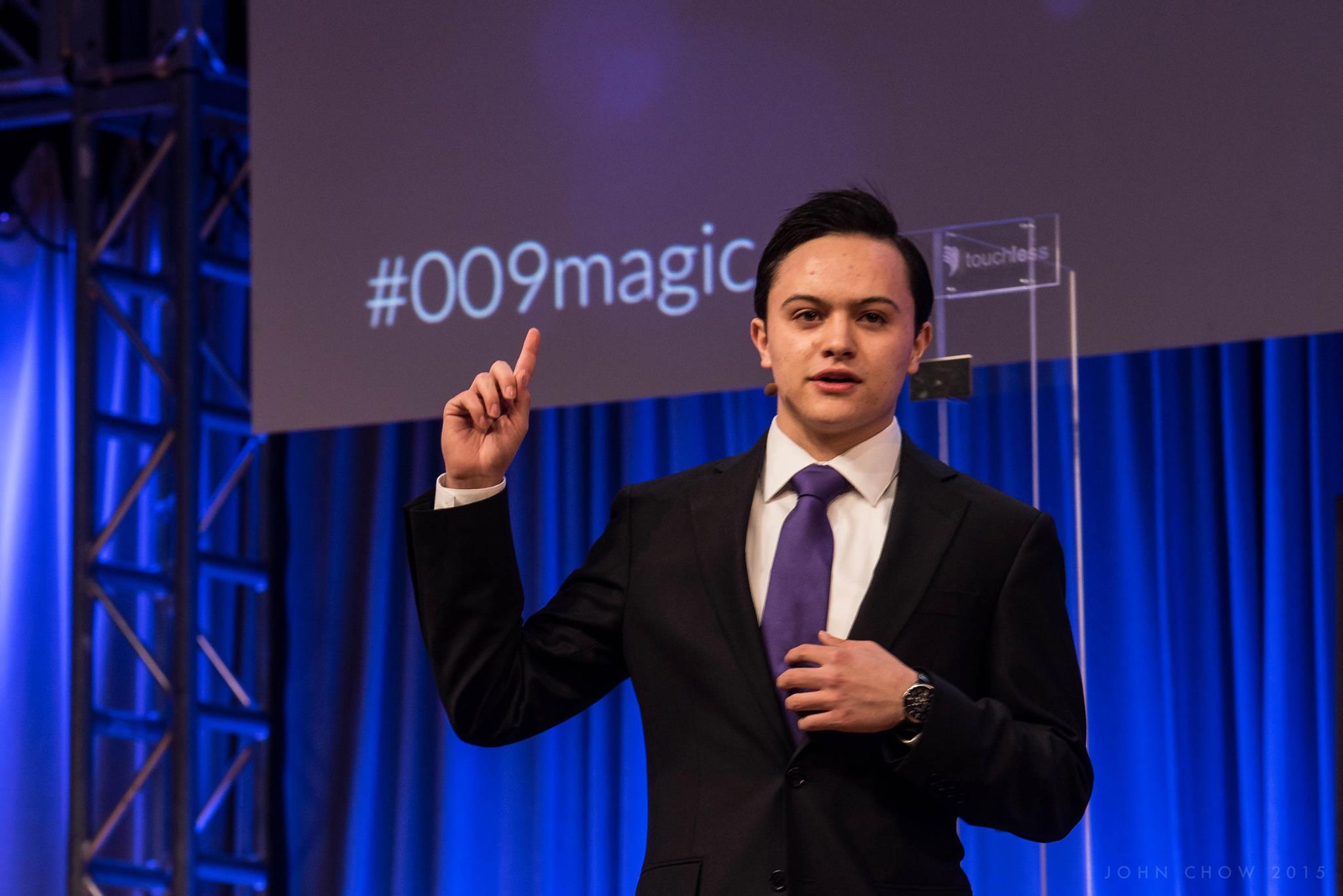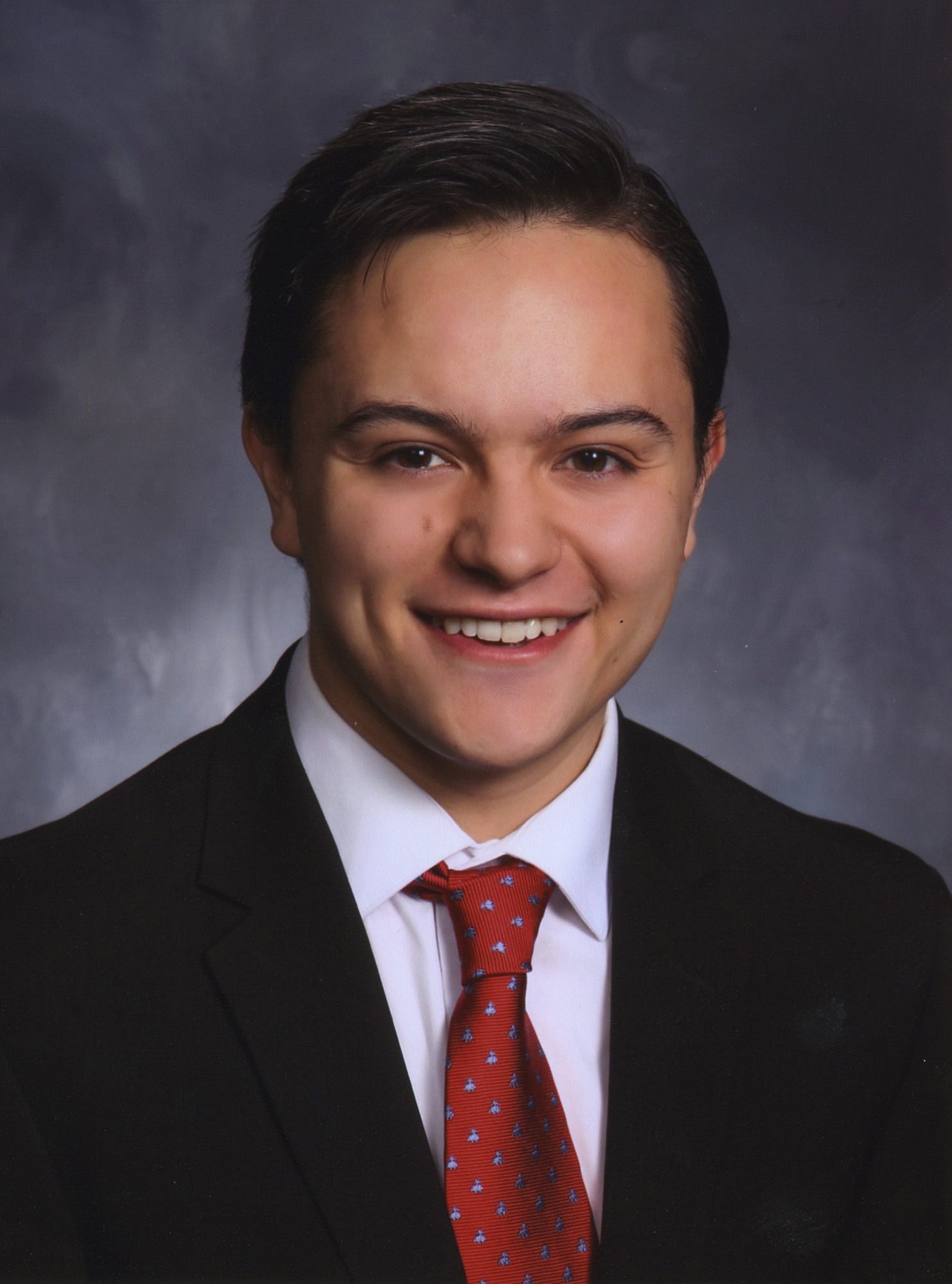
Camilo Ruiz on his work on award-winning medical projects and what inspires his research.
My opportunities were so different [to those of Colombian orphans]. I felt a moral responsibility to do the most I could with the opportunities I had been given. That has been the prime motivation for my research.
Camilo Ruiz
Camilo Ruiz's desire to produce research which has a direct impact on people’s lives is motivated by his experience growing up with one foot in the US and another in Colombia, where he was born.
From an early age, he was very aware of the vast difference in opportunity open to people in rich countries compared to those in poorer ones.
Over his student years he has constantly moved around different research projects, aiming to get as much experience in different disciplines and different techniques to enable him to create treatments which will make a difference to large numbers of people.
Two of those projects have centred on medical devices which have won huge plaudits and awards, giving him a taste of the possibilities that a combination of different scientific approaches can have on treating disease.
No sense of safety
Camilo began his life in Colombia, but his family moved to the US when he was four as a result of rising violence and domestic terrorism. That violence had resulted in his family’s apartment having its windows blown out by a bomb set off in Bogota a few months before he was born. His mother normally went to the place where the bomb exploded at the time it went off, but was fortunately not there that day. Guerrilla fighters often kidnapped people on the road to the city his grandparents lived in. “There was no sense of safety,” says Camilo. “I am very grateful to my parents. They moved to the US for my brother and my education and safety.”
He returned every year to see his extended family and he says that meant that, though he grew up in the US, he retained a Colombian perspective. “I had all the opportunities associated with living in the US, yet I constantly saw the comparative lack of opportunities that often existed in Colombia,” says Camilo.
In high school he was a magician and was asked to perform in an orphanage in Colombia one Christmas. “It shook me,” he says. “Many of the kids were my age and had lost their parents to violence and terrorist attacks. We were not fundamentally different, yet they lived in such radically different circumstances from mine. They walked miles to school. They lacked textbooks or modern technology. They lived in rooms with 20 to 30 people. Their opportunities were extremely limited.
He adds: “I met one boy, in particular, who was the same age as me. We spoke for a long time. Yet afterwards, I went back to the US to a comfortable home and a strong high school while he stayed behind. My opportunities were so different. I felt a moral responsibility to do the most I could with the opportunities I had been given. That has been the prime motivation for my research.”
Camilo did well at school. When he was very young he was interested in becoming a lawyer or a professional tennis player, but, by high school, he had discovered a passion for science.
In large part this was due to his family – both his parents are engineers and his brother was also interested in engineering and had model airplanes hanging from the ceiling of his bedroom. Camilo did an Advanced Placement course in chemistry when he was 16 and competed in the US National Chemistry Olympiad. His teacher, Mrs Susan Gray, was a big inspiration. She said she was not worried about what grades her students got. What was important that they learned to love chemistry in her class. “That was her fundamental philosophy,” he says. It was largely her influence that led to him doing the Welch Summer Scholars Program in synthetic chemistry research at the University of Texas at Arlington between his junior and senior years of high school. The programme was his first introduction to research.
Learning experiences
He did another summer course at MIT during high school, this time focused on electronics. When he was 17, he started as an undergraduate student at MIT, double majoring in biological engineering and in electrical engineering & computer science.
During his first year he worked part time at a biotech company, the DNA Medicine Institute. The company’s mission is focused around personalised healthcare and he worked on the rHEALTH sensor – a handheld, reusable medical device that measures blood cell and protein levels, allowing for critical diagnostic tests from one blood drop. “It shrinks down a hospital room’s worth of equipment into a hand held device which can provide critical medical information from a single blood drop,” says Camilo. He was part of a small team working on the second and third prototypes of the device on issues such as optics and data processing. It combined various disciplines, including chemistry, biology, physics and mechanical engineering as well as computer science. The device has gone on to win numerous awards, including the $500K Nokia Sensing XChallenge competition and is a finalist for the $10M XPrize. “It was an incredible experience to be working on something which will be so impactful,” says Camilo.
He was keen to get experience of a variety of different settings so in his second year he moved to the renowned engineer Professor Robert Langer’s laboratory at MIT. Mentored by Dr. Armon Sharei, he worked in a small team on CellSQZ, a microfluidic device which delivers macromolecules to many cell types. In 2014, the device was named a “Top 10 World Changing Idea” by Scientific American. “It allows external material to be put inside a cell and can be used to engineer the immune system to attack different diseases. In the long term it could provide a powerful new paradigm for treating various diseases,” says Camilo. It is currently being commercialised through a start-up, SQZ Biotech, which has recently announced a $500m collaboration with pharmaceutical company Roche.
During his time at MIT, Camilo has also worked with the synthetic biologist Professor Jim Collins and spent a summer at Johns Hopkins University working on nanobiotechnology. He also spent a summer as a consultant at McKinsey & Company’s New York Office so he could understand the business side of commercialising medical technology. He says he needs a variety of experience in order to achieve his goal which is to invent new biotechnology that can be commercialised and scaled globally.
Gates Cambridge
In his final year at MIT, he applied to do his MPhil in Advanced Computer Science at Cambridge. Academically, he hopes to strengthen his computational skills further. He also hopes to understand the unique aspects of the UK, including the healthcare system, which he believes will grant insight into how to scale technologies globally. He was drawn by the Gates Cambridge Scholarship’s mission and was interested in being part of a group of international scholars from lots of different disciplines who he felt he could learn a lot from. “Science on its own is not enough. Researchers need a rounded view of global problems. I want to understand the non-scientific factors as well,” says Camilo.
He was encouraged by a previous Gates Cambridge Scholar, Joshua Cohen, who he had met through Camp Kesem, a support community for children of cancer patients which puts on summer camps and other events. Camilo’s grandfather died of cancer. He says it took a big toll on his father and the whole family and that motivated him to join.
For his research at Cambridge he hopes to keep learning and expanding his range of knowledge through merging biological engineering with computer science. “I will apply machine learning to datasets in medicine and biology with the aim of using these for therapeutic insights,” he says, adding that he hopes to go on to do a PhD in Bioengineering. “By learning fundamental techniques and modes of thinking from a range of disciplines,” he says. “I will have a unique and rich perspective for my research.”
*Photo credit: Landon Carter. The photo is from the final presentation of Camilo's capstone design class. Leading a team of 22 MIT seniors, they invented, designed, and launched a novel mechanical engineering product within a period of around four months. The final presentation was before a live audience of 2,000 people, including senior engineers and investors.

Camilo Ruiz
- Alumni
- United States
- 2016 MPhil Biological Science (Sanger Institute)
- King's College
Camilo Ruiz is a senior at the Massachusetts Institute of Technology majoring in Biological Engineering. He has conducted extensive research focusing on translational and high-impact work. Working on a team at the DNA Medicine Institute, Camilo helped to develop a blood diagnostic device capable of shrinking a room’s worth of hospital equipment into a patient’s hand. The device won the $500K Nokia Sensing XChallenge competition and is a finalist for the $10M XPrize. Working on a team at MIT’s Langer Lab, Camilo helped to develop the CellSQZ, a microfluidic device to deliver macromolecules to many cell types. In 2014, the device was named a “Top 10 World Changing Idea” by Scientific American. Overall, Camilo has two main goals. First, he hopes to develop cutting-edge tools that make bioengineering cheaper, faster, and more accessible. Second, he hopes to invent biotechnologies that solve critical problems in health and energy. Through the Gates Cambridge Fellowship, Camilo will pursue an M.Phil. in Biological Science. By developing a strong foundation in machine learning and other computational techniques, he hopes to model, design, and construct biological systems more effectively.
Previous Education
Massachusetts Institute of Technology












